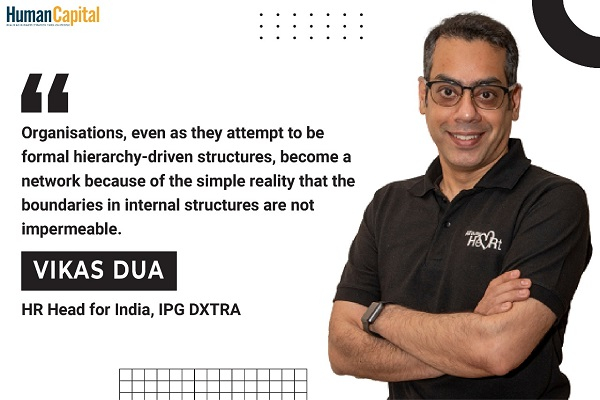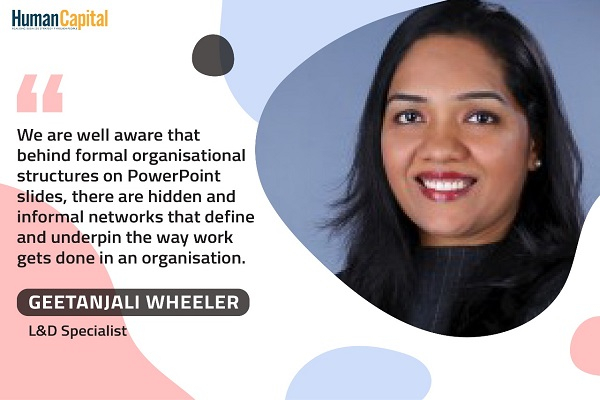Empowerment is the process of becoming powerful, more confident, and effective, especially while controlling one's own role/team and claiming one's rights or delivering business results.
Power is the capacity or the ability to direct or influence the behaviour of others or the course of events through control or authority to produce an effect or outcome. In my mind, Power has only one duty - to secure the welfare of the people; be it the team, organisation, community or country. In an organisational context, power or authority can be exercised on employees who are in the direct realm of control and reporting relationship. However, leaders can influence people who are not in any kind of direct reporting or working relationship with them.
Typically, Power is either assumed (self), or assigned (tops-down) or vested (up) and can be on multiple dimensions. It can be a result of one’s knowledge, connections, confidence, or position. Power can also be contextual, wherein the locus of control shifts due to the leverage one has or gains from the situation. Most commonly, people give up their power assuming that they do not have any. Often, power is perceived than articulated or defined in simple words. As they say, perception is reality!
Empowerment, on the other hand, is a set of policies and procedures designed to increase the degree of autonomy and efficacy of individuals, teams, organisations or communities to enable them to represent their interests and impact in a responsible, effective and selfdetermined way, acting on their own authority. It is the process of becoming powerful, more confident, and effective, especially in controlling one’s own role/team and claiming one’s rights or delivering business results.
Empowerment as action refers both to the process of selfempowerment and to the professional support of people, which enables them to overcome their sense of powerlessness and lack of influence. To get work done with power, one should engage the resources under one’s control and recognise those resources that are performing well. The most enduring empowerment is the one that is intrinsic and selfinspired. When employees are completely aligned with the company’s vision and have owned up the mission, they feel driven and selfmotivated to achieve the objectives they have set for themselves. Such empowerment is lasting and far more effective than the authority that is either assigned or vested basis the role they play in an organisation.
Employee empowerment is pivotal for employee engagement, productivity, and employee satisfaction. It is built on a foundation of trust and based on a well-defined framework of rules of engagement and expected outcomes.
Authority follows responsibility and is normally conjoined with accountability. Often, when employees are held responsible for results or business outcomes, they require and expect a certain level of empowerment which enables them to perform at the expected level. And, this is also reflected in their sense of ownership and pride.
IT systems are instrumental in cascading the empowerment (authority) across different levels of the organisation supported by a variety of enablement (tools). In a scenario where the empowerment is to clearly execute orders, the authority is cascaded appropriately to different levels in the hierarchy to secure the planned outcome, like in defence services. While there is authorisation or empowerment assigned to a particular role in an organisation basis the responsibilities, the resources available, and the expected outcomes to be delivered, there is a certain power that is inherently assumed by the individual, basis his/ her knowledge, domain expertise, experience, and the level of confidence one has in a given context.
Erstwhile, supervision involved in managing by command and control, wherein the compliance to a defined process was often checked and deviations were called out for correction as appropriate in an environment of operational excellence. Today, the supervisor’s role is to coach and support as required or solicit in an environment of innovation to ensure the resources are optimally utilised and outcomes are delivered on time. In other words, there is no one way that is right! There could be many ways to get to point B from point A and one must figure out an optimal way to get to the destination basis the resources and time available.
Supervision in a remote working environment must be different as it can become an unwarranted overhead and a possible bottleneck if it tends to seek frequent updates and information from the employees as opposed to getting such updates from systems seamlessly. A supervisor’s role must be that of a coach, enabler, and supporter that helps in clearing the roadblocks in execution even before they are encountered and accelerate the performance. Optimal empowerment results in delayering and flat organisations that have lower overheads, are cost- effective and fiercely competitive.
The democratisation of power
Technology has democratised power. In other words, every netizen has uninhibited access to both retrieve and post to the world of information in this internet age. Such power must be exercised responsibly with care and prudence since information once posted to the world wide web, even if retracted, leaves digital traces and is never fully expunged. Since information travels at the speed of light and it is possible to err as humans, businesses must create safety nets and correction mechanisms to secure the decisionmakers intent and curtail the negative impact on the business through appropriate review, triangulation, and re-check mechanisms either through the work-flow or intelligent systems.
A self-driven employee who is very disciplined, knowledgeable, and committed to deliver the expected outcomes is selfempowered. Such employees are charged up and they grab the power that is required to get the job done. They do not wait for permissions, but are willing to take risks, at times fail, learn from their mistakes, and make progress while being accountable for their actions at every step. This genre of employees are avid learners and do not repeat the same mistake. They not only learn quickly from their own mistakes, but also learn from others’ mistakes, thus accelerating their learning and maturity process.
On the other extreme, employees at times are reluctant to take on more power and associated accountability, as they fear the liability and are hesitant to take on such huge responsibilities. This can be overcome through the creation of safety measures, shared responsibilities, and creation of employee equity in the business.
Power in the wrong hands
Power in the hands of a wrong person can do more harm, even unintentionally and inadvertently than a right person who has not been adequately empowered, but intentionally strives towards making an impact. Recent trauma due to the racial crimes against coloured people is a clear testament to the power imbalance and the impact of such diaspora of power amongst different segments of the society.
When power is aligned with the right intentions and co-exists with the right set of values and ethics in an environment that fosters peace and equitable opportunities to one and all, and with good governance, it results in prosperity and wellness of the society.
Business leaders must exercise prudence and discretion to choose between empowerment vs. enforcement. In an environment where strict compliance to a pre-set process is of paramount importance and there is little or no room for trialling or challenging the status quo, enforcement (command and control) yields the expected results and helps in maintaining good control over the operations. However, in a problem-solving situation where the employees are expected to experiment and innovate new solutions (outcome driven), empowerment and a failsafe environment will help in generating a positive business impact in a sustainable way. Enforcement is typically through the authority that is vested in (brick and mortar companies) and empowerment is through the power of control that is usually assumed (technology companies).
In competitive situations, where the decisions taken are time sensitive and the cost of delaying decisions is as bad as a bad decision, it is important to empower the employees in-situation to take timely decisions that are locally relevant and intelligent to help the business.
Decentralised power improves efficacy and efficiency. There is a higher degree of empowerment in a startup environment as there are fewer people wearing multiple hats and the decisions must be taken quickly without any latency. There is less red tape and more empowerment. This results in a higher degree of employee engagement, ownership to decisions and the work at large.
In the current era of technology and digital age, knowledge, information, insight, and intelligence are proxies to power. In the business purview, these factors are often considered as differentiators that power the growth engine of the business. Such power is garnered and nourished individually based on the context and situation. As a result, empowered leaders and power centres emerge naturally. They are subsequently supported by the organisations and people around for the benefit of the business or the community as appropriate.
In the current day and age, empowerment is the theme and trend. Whether it is education or learning (anytime, anywhere) or entertainment (on-demand) or music (listener’s choice) or physical fitness (enabling individual choice) or beverages (made to consumer’s choice like was introduced by Starbucks several years ago) or in the ice-creams (customised to the customer’s choice), empowerment and democratisation of power is clearly the trend that is being wellsought by the market and is being rewarded.
Unless the empowerment is on a foundation of trust and is wellaligned with the vision and values of the business, it is difficult to assure the end objectives that are being pursued. When the empowerment is subjective and based on a bias, it has invariably resulted in creation of polarity and unwarranted political behaviour that is counterproductive.
Need for optimal empowerment
Optimal empowerment helps the employees to stay engaged, satisfied, improves retention, and helps them perform to their full potential. Empowerment implies quicker response to the customer, communication and teamwork. Empowered employees participate in creating their own KPIs/goals. Empowerment lowers absenteeism and results in higher productivity.
Employees are found to be wellaligned and lesser in conflict with administration and management. Change management is found to be easier and organizations were found to become more agile with empowered employees actively participating in the decisionmaking process. Those who are hesitant to make decisions and are averse to taking risk or associated accountability are often comfortable either waiting on the side-lines or blaming the management or system or culture for not taking timely decisions and actions. They tend to be a part of the problem and not the solution.
In the current world of asynchronous execution and remote working, automatic and systematic updates without much human intervention to help with access of relevant information based on role to provide the required inputs or comments online, thus eliminating the bottlenecks of ‘waiting for decision/approval’ are instrumental in building an agile, intelligent and empowered business.
In organisations where the talent is multi-national, the work is spread across continents, decisions need to be taken collectively and dynamically, employee empowerment is key to business success. When multiple people are involved in decisionmaking, it is highly probable that the process takes longer. For such decisions to be effective and timely, they must be based on reliable data and information from the same source and guided by consistent business principles.
Follow and connect with us on LinkedIn, Facebook, Instagram, Twitter for latest HR news and insights

Do you think hybrid work arrangements would be a common feature of the workplaces going forward?
Trending
-
SBI General Insurance Launches Digital Health Campaign
-
CredR Rolls Out 'Life Happens' Leave For Its Employees
-
Meesho Announces 30-Week Gender-Neutral Parental Leave Policy
-
Microsoft Unveils Tech Resilience Curriculum To Foster An Inclusive Future
-
60% Indian Professionals Looking For Job Change Due To COVID: Survey
-
SpringPeople And Siemens Collaborate For Digital Transformation Push
-
86% Professionals Believe Hybrid Work Is Essential For Work Life Balance: Report
-
Almost 1 In Every 3 People's Personal Life Affected Due To Work Stress
-
Meesho Rolls Out Reset And Recharge Policy For Employees
-
80% Of Talent Leaders & Academics Say Pandemic Changed Skill Needs For Youth: Report
-
Hero Electric Rolls Out 'Hero Care' Program For Employees
-
Human Capital In Collaboration With ASSOCHAM Hosts Virtual Conference
-
IKEA India, Tata STRIVE Collaborate To Create Employability And Entrepreneurship Opportunities
-
SAP India, Microsoft Launch Tech Skilling Program for Young Women
-
DXC Technology, NASSCOM Collaborate For Employability Skills Program
-
Lenskart To Hire Over 2000 Employees Across India By 2022
-
Mindtree Launches Learn-and-Earn Program
-
Tata AIA Extends 'Raksha Ka Teeka' To Its Employees
-
Swadesh Behera Is The New CPO Of Titan
-
NetConnect Global Plans To Recruit 5000 Tech Professionals In India
-
Hubhopper Plans To Hire 60% Of Indian Podcasters By 2022
-
Corporate India Needs More Women In Leadership Roles: Report
-
Aon to Invest $30 Million and Create 10,000 Apprenticeships by 2030
-
Tech Mahindra Launches ‘Gift a Career’ Initiative for Upskilling of Youth
-
40% Women Prefer Flexible Working Options in Post-COVID World: Survey
-
3 out of 4 companies believe they can effectively hire employees virtually: Report
-
Vodafone , CGI and NASSCOM Foundation launch digital skills platform
-
Odisha: Bank, postal employees to deliver cash for elderly, differently-abled persons
-
Skill India launches AI-based digital platform for "Skilled Workforce"
-
Hiring activity declines 6.73% in first quarter: Survey
-
70% startups impacted by COVID-19 pandemic
-
Bajaj Allianz Life ropes in Santanu Banerjee as CHRO
-
Over 70 Percent MSMEs look at cutting jobs to sustain businesses
-
93 Per Cent employees stressed about returning to office post-lockdown
-
Johnson & Johnson India announces family benefits for same gender partners
-
Indian firms turning friendly towards working mothers
-
Welspun India names Rajendra Mehta as new CHRO
-
Wipro partners with NASSCOM to launch Future Skills platform



Human Capital is niche media organisation for HR and Corporate. Our aim is to create an outstanding user experience for all our clients, readers, employers and employees through inspiring, industry-leading content pieces in the form of case studies, analysis, expert reports, authored articles and blogs. We cover topics such as talent acquisition, learning and development, diversity and inclusion, leadership, compensation, recruitment and many more.
Subscribe Now












































Comment